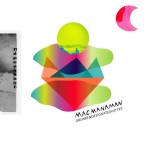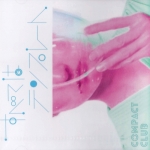Among the top releases of 2017, I always avoid writing about anything on my own Call And Response label for obvious reasons. For equally obvious reasons, the music Call And Response puts out is also always among my favourite new music of the year (otherwise why would I go to the trouble of putting it out?) so I’m giving the label a page of its own to run through what was a very busy year in new releases:
Lo-shi – Ninjin
Lo-shi are an instrumental post-rock/electronic duo and Ninjin was the first of two albums they released in 2017 (the second was an equally excellent self-released CD/download called Moro-Q). Lo-shi’s music is characterised by eerie soundscapes and beats that range from skittering electronica to insistent, almost krautrock rhythms, while the melodies and tones combine washes of synth with theremin, Jew’s harp and Durutti Column-esque guitar.
(Buy the CD here)
Looprider – Umi
The second post-rock album Call And Response released in 2017 was this single 25-minute-long rock monster of a track by Looprider. Following on from the hardcore and noise-influenced Ascension and their pop/metal/shoegaze debut My Electric Fantasy, an instrumental prog rock epic may have seemed like another hard swerve in another direction, but it’s really a refinement of the same combination of sweet and heavy that the band have been exploring from the start.
(Buy the CD here)
P-iPLE – Do Do Do A Silly Travel By Bicycle Bicycle
This clumsily titled mini-album is a short-sharp-shock of scuzzy hardcore and no wave delivered with a playful and nonsensical sense of humour. The guitar sounds are tortured and glorious, the rhythms are breakneck, and vocalist Madca Kitabeppu (also of synth-punk trio Jebiotto) is a natural born rock star.
(Buy the CD here)
V/A – Throw Away Your CDs Go Out To A Show
I don’t include Call And Response releases in my year-end rundowns, partly because no one would trust the lists if I did, and partly because I find it hard to assess music I’m this personally invested in against music I simply enjoy as a fan. This compilation, however, would definitely have been No.1 if I’d been including everything. It’s everything I love — skronky art-punk and noise-rock that channels the ragged creativity of the postpunk era while rarely resorting to direct pastiche. It also includes fantastic songs by most of my favourite bands in Japan, like Panicsmile, Melt-Banana, Hyacca, otori and more, so I’m not going to be ashamed in any way of saying that this is a fucking awesome album.
(Buy the CD here)
Sharkk – Be That Way
Sharkk is another way of saying Sean McGee, drummer from Looprider and Tropical Death. It’s also a convenient shorthand round these parts for a kind of sweetly sentimental, emo-tinged indie rock with gnarly, 90s alt-rock guitars. One of the few unashamedly melodic bands on the label at the moment, McGee deploys his tunesmithery in the service of a faintly self-effacing, rather ambivalent nostalgia for teen angst.
(Buy the cassette here)
Tropical Death – Modern Maze
Like Sharkk, there’s a sense of harking back to ‘90s indie rock in Tropical Death, although they take a more angular approach to their arrangements and a far more cynical approach to their lyrics. From the melodic title track to the post-hardcore rhythm workout Tribal, Tropical Death load their songs with hooks and little moments of invention that ensure every track takes you somewhere unexpected.
(Buy the cassette here)
Looprider – Ascension (cassette re-release)
Originally released as a limited edition CD in 2016, Ascension is Looprider’s take on hardcore and noise, a twenty-minute nuclear explosion of a record that starts and ends in squalls of pure noise but on the way takes you on a whirlwind tour of scratchy hardcore and the scuzzier fringes of Looprider’s more familiar metal-adjacent territory.
(Buy the cassette here)
illMilliliter – New Standard
The debut album by a Tokyo post-hardcore band featuring ex-members of Tacobonds and Imamon, dealing in frenetic, twisted guitars and tight, focussed, aggressive rhythms. illMilliliter are clearly influenced by bands like Shellac (Bob Weston worked on the album as mastering engineer), Slint and Fugazi, as well as Japanese acts like Panicsmile and possibly Number Girl/Zazen Boys, but there’s also an appreciation for sparseness and the spaces between sounds, which lifts New Standard above most Japanese punk and post-hardcore and makes them something worth playing special attention to.
(Buy the CD here)
















